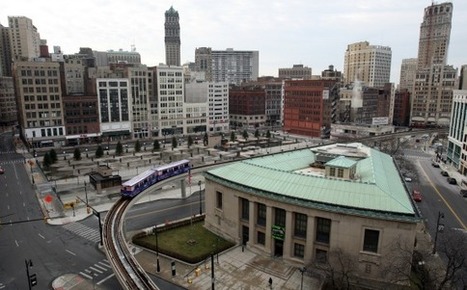by Justin Pope
"Detroit's bankruptcy filing last week and the decades of decline that preceded it have been a predictable political and historical Rorschach test. The right blames the city's demise on moral failures and weak character -- the banana-republic-caliber corruption and fiscal fecklessness of its politicians, the greed of its unions, the spinelessness of automobile executives who gave into them. To the left -- more inclined to see history as the product of "great forces" than "great men" (or terrible ones) -- the Motor City was swamped by powerful tides: racism, sprawl, and unbridled capitalism.
"But what was distinctive about Detroit? Other cities struggled mightily to adapt to the decline of manufacturing. But only Detroit struggled mortally - at least in terms of municipal cash flow. Why do Detroit's troubles so vastly exceed not only those of Boston, New York, Philadelphia and Chicago, but Baltimore, Providence, Cleveland, Pittsburgh, St. Louis and Rochester?
"Here's a possible part of the answer, in the form of question. What exists in each of those cities, but can't be found in Detroit? One answer: a large, and usually quite wealthy, private research university. Where is Detroit's Johns Hopkins? Or, to limit the comparison to neighboring Rust Belt states, where is its Carnegie-Mellon, or Case Western Reserve? Why is there no, say, Henry Ford University in Detroit? And if there had been one, would it have made a difference?"



 Your new post is loading...
Your new post is loading...







